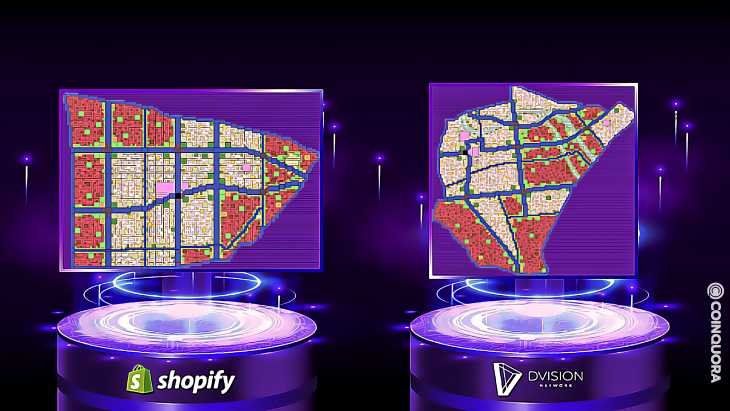- Dvision Network announces its third Land sale.
- The meta cities will be exclusively owned by users.
- The project aims to provide brand new user experience and gameplay.
Ethereum-based multichain NFT Metaverse platform Dvision Network announced its third Land sale, set to start on April 19 at 11 AM (GMT). For the upcoming sale, Dvision Network will feature Berlin and Sao Paulo Meta-Cities, which the company says to be the “5th and 6th in the pipeline of the cities that are connected via Dvision World.”
The announcement came in two blog posts; the first one explained the news generally, while the second blog explained how it works. In the first blog, Dvision Network explained that the third land sale will be conducted on both Polygon network and BNB Chain. In addition to that, 50% of the offered LAND NFTs will be sold via the Shopify Marketplace.
In detail, the NFT land, which were pre-minted on Polygon, will be available on Shopify Marketplace for sale, while the NFT land pre-minted on BNB Chain will be available for sale on Dvision Marketplace.
Users can purchase the lands from Shopify Marketplace using their credit card. However, the land on Dvision Marketplace will be purchased using DVI tokens.
Meanwhile, the second blog post explained that each Meta-City is segregated into three big territories divided into User-Owned, Management-Owned, and Infected Area. The infected land is a total of 40% of the available land, it was built to encourage the play-to-earn (P2E) concept.
The Land sale forms 40% of the available space within Meta-City in order to offer the users a ready-to-create platform. “This portion of the virtual estate can be used in order to create a limitless amount of diverse pieces of content,” the company stated.
The remaining 20% of the overall space of land from each Meta-City will be allocated to the Dvision Team. This will be utilized for the allocation of the Land to the strategic partners for their brand-specific content estate to introduce diverse initial pieces of content and reserve some space for the future use cases.


